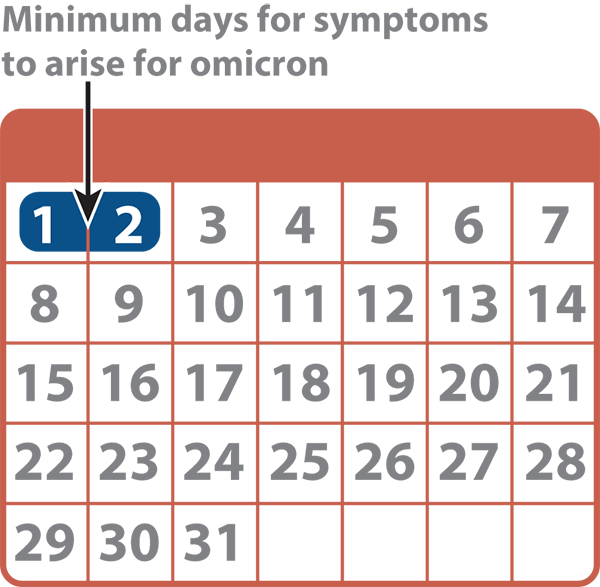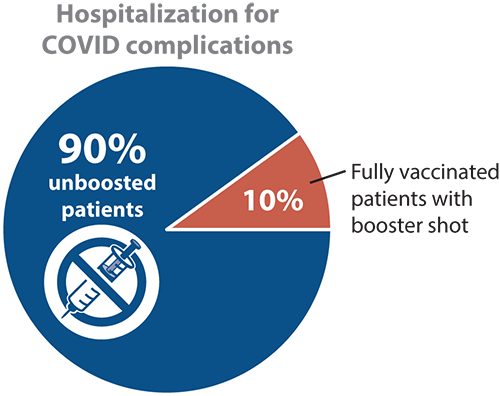What Is the Omicron Variant, and What Does It Mean For Vaccines?

On November 26, 2021, the World Health Organization designated a new variant of the COVID-19 virus, known as omicron, as a variant of concern. The omicron variant contains about 50 mutations that distinguish it from the first SARS-Cov-2 identified, with most of the mutations occurring in the spike protein that is the target of all current vaccines. Some of the mutations found in the omicron variant are also present in other identified variants, whereas others are unique to omicron.
On first discovery, scientists do not know whether the mutations present in any particular omicron variant affect how quickly the virus spreads, the severity of illness it causes, or how well the current vaccines protect against infection or illness. What scientists do know is that the rise of new variants is not unique or unexpected because there is potential for mutations to occur every time a virus reproduces. The only way to prevent new variants from occurring is to prevent the virus from replicating by using vaccinations to reduce the number of people that can be infected.
The best way to protect yourself against all new variants is to be fully vaccinated and up to date on your boosters. Vaccines typically provide a person with what is called a polyclonal antibody response. This means your body will make many different antibodies to respond to the same invading bacteria or virus, known as an antigen. Over time, the antibodies that our bodies initially make can be improved to make the best antibodies to help your body fight off an infection. This means that the antibodies your body makes after vaccination can help prepare your immune system to respond to new SARS-CoV-2 variants.
And here’s more good news about vaccines: in addition to your immune system’s ability to adapt and respond to variants, the vaccines can also be adjusted quickly to help your body develop antibodies that are targeted to specific variants. Updating vaccines is already common–for example, the flu shots given out each fall are tailored against whichever flu variants scientists think you are likely to encounter in the coming year.
Why Has the Omicron Variant Spread So Quickly?
As of January 25, 2022, 31 U.S. states plus Washington, D.C., have reported that the significant increase in COVID-19 infections driven by the omicron variant may be lessening. Nevertheless, the United States has seen more than 72 million cases and more than 873,000 deaths due to COVID-19 illness in the 30 days prior to January 28, 2022. Estimates from the CDC indicate that more than 99% of new COVID infections are a result of the omicron variant.
Why did this variant spread so very quickly? One reason for the rapid spread is the faster incubation period. The time that passes between first exposure to developing symptoms for the omicron variant can be as few as 2 days. For the delta variant it was closer to 4 days, and with earlier variants it was closer to 5 days.
The omicron variant is also better able to evade antibodies produced after vaccination, leading to more breakthrough cases.
Should you still get vaccinated and boosted? Yes! Booster shots of mRNA vaccines are 90% effective at preventing hospitalization from COVID-19.

Is the Omicron Variant Less Severe?

Omicron seems to be less severe than the delta variant. However, it could appear that omicron is less severe because it is infecting more vaccinated people than previous strains. People who are vaccinated and boosted with an mRNA vaccine are 90% less likely to be hospitalized than those who are not fully vaccinated and boosted.
Is There an Omicron-Specific Vaccine Coming?
Yes; Pfizer and Moderna have both recently announced trials of omicron-based vaccine candidates.
